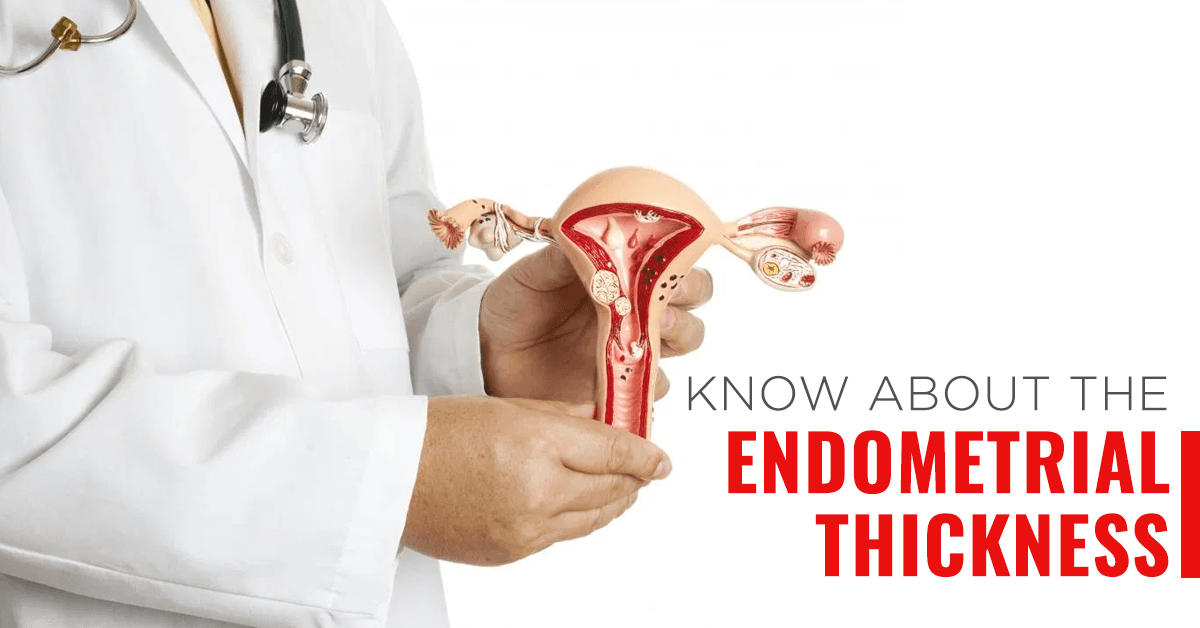
Endometrial Thickness for Pregnancy - What You Must Know
Endometrial thickness is the measurement of the endometrium, or the lining of the uterus. This measurement is important in understanding fertility and predicting the success of pregnancy. In this article, you will know the significance of endometrial thickness for pregnancy.
What is the normal endometrial thickness for pregnancy?
The normal endometrial thickness for pregnancy varies depending on where a woman is in her menstrual cycle. During the menstrual cycle, the endometrial lining of the uterus thickens, preparing for pregnancy. The thickness of the endometrial lining is measured in millimetres (mm).
At the beginning of the menstrual cycle, the endometrial thickness is typically between 1 and 4 mm. As ovulation approaches, the endometrial thickness increases to between 6 and 10 mm. After ovulation, if fertilisation occurs, the endometrial thickness continues to increase to support a developing embryo. A healthy endometrial lining at this stage should be at least 7 mm thick, with 8-10 mm being optimal.
Why is endometrial thickness important for pregnancy?
Endometrial thickness is important for pregnancy because it provides a receptive environment for implantation of a fertilised egg. When an egg is fertilised, it travels through the fallopian tubes and into the uterus, where it implants into the endometrial lining. A thick, healthy endometrial lining provides the ideal environment for implantation and supports the growth and development of the embryo.
In addition, a thick endometrial lining is important for successful embryo implantation and pregnancy because it ensures adequate blood flow to the embryo. The endometrial lining supplies the developing embryo with nutrients and oxygen through a network of blood vessels. A thinner endometrial lining may not provide enough blood flow to support a developing embryo.
Suggest to Read:- IUI Babies vs Normal Babies
What can affect endometrial thickness for pregnancy?
Several factors can affect endometrial thickness for pregnancy. One important factor is age. As women age, their endometrial thickness naturally decreases, which can make it more difficult to conceive and maintain a pregnancy.
Other factors that can affect endometrial thickness include hormonal imbalances, such as low oestrogen levels, which can result in a thin endometrial lining. Certain medications, such as tamoxifen, which is used to treat breast cancer, can also thin the endometrial lining.
In addition, medical conditions such as polycystic ovary syndrome (PCOS), endometrial hyperplasia, and uterine fibroids can also affect endometrial thickness for pregnancy. Women with these conditions may have a thinner endometrial lining, which can make it more difficult to conceive or maintain a pregnancy.
How is endometrial thickness measured?
Endometrial thickness is typically measured using transvaginal ultrasound (TVUS). This non-invasive procedure involves inserting a wand-shaped ultrasound probe into the vagina to create images of the uterus and ovaries. TVUS allows doctors to measure the thickness of the endometrial lining and identify any abnormalities that may be affecting fertility or pregnancy.
In some cases, a saline-infused sonohysterography (SIS) may be used to measure endometrial thickness. This involves injecting saline into the uterus through the cervix and then using TVUS to measure the thickness of the endometrial lining.
What if the endometrial thickness is abnormal?
If the endometrial thickness is abnormal, there are several treatment options available to improve fertility and increase the chances of a successful pregnancy. In cases where hormonal imbalances are the cause of a thin endometrial lining, medications such as clomiphene citrate or letrozole may be prescribed to stimulate ovulation and increase oestrogen production.
Conclusion
Endometrial thickness plays an important role in the success of pregnancy. A thick and healthy endometrial lining provides a receptive environment for embryo implantation and ensures adequate blood flow to the developing foetus. Age, hormonal imbalances, certain medications, and medical conditions can all affect endometrial thickness, but there are treatment options available to improve fertility and increase the chances of a successful pregnancy. It is important for women trying to conceive to have regular check-ups with their healthcare provider to monitor their endometrial thickness and address any concerns that may arise.
Appreciate the creator